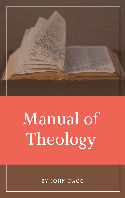Thomson Translation
Thomson Translation
Charles Thomson’s Translation of the Old Covenant is a direct translation of the Greek Septuagint version of the Old Testament into English, rare for its time. The work took 19 years to complete and was originally published in 1808. Thomson is credited with having created the work with little to no help from other scholars. Charles Thomson was a Greek scholar, and before the American Revolution, had been a teacher at several prominent schools. Thomson’s translation of the entire Greek Bible, excluding the Apocrypha, was published in one-thousand sets of four volumes each, the fourth volume being Thomson’s translation of the New Testament in that same year. The printer was Jane Aitken of Philadelphia.[1]
Thomson’s was the first English translation of the Septuagint published, and was considered by British biblical scholars to represent the best in American scholarship. David Daniell, in his compendious work The Bible in English (2003), states that the scholars who worked on the Revised Version in England (1881) consulted Thomson’s translations (among others, of course) during their work. Thomson’s translation of the New Covenant/Testament is the first American translation of the New Covenant.-Wikipedia

Dagg Manual of Theology (and links to this work in various other formats).
Dagg Manual of Theology (MySword for Android)
Dagg Manual of Theology (theWord Bible Format)
Dagg Manual of Theology (esword format)
Dagg Manual of Theology (PDF Format)
Download
charles-thomson-oc-ncwmbibeng.ont (125 downloads )Advertisement
Using theWord Module layout Sets theWord does not just read the particular modules (books) you have in its folder. These books must be registered and added to a "Module Layout Set", which one of these must be chosen. So you can separate, slice and dice your library as you wish, or put them all into a single library. But the module may be invisible if you do not correctly set this up on adding a new module. This class explains all of how to do this.
